16+ SAMPLE Startup Executive Summary
-
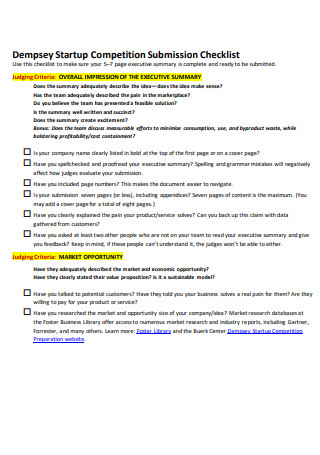
Startup Competition Executive Summary
download now -
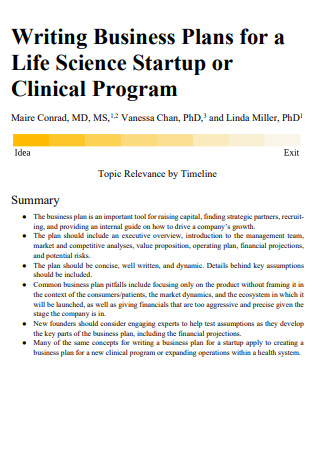
Startup Clinical Program Executive Summary
download now -
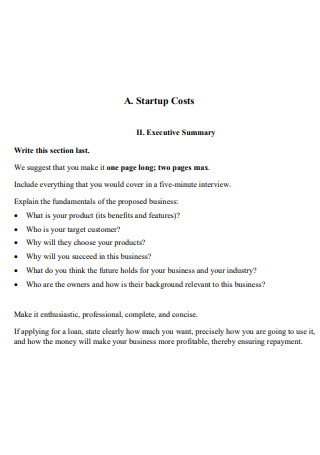
Startup Costs Executive Summary
download now -
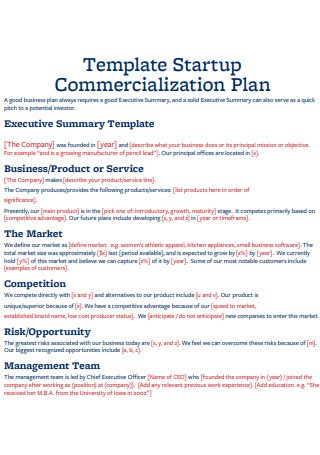
Startup Commercialization Executive Summary
download now -
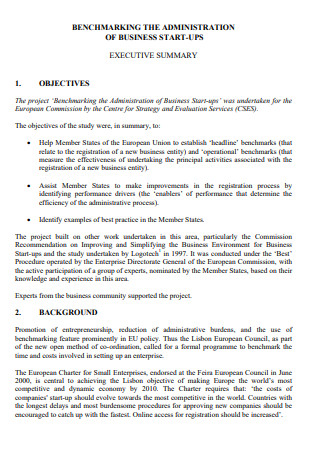
Business Startup Executive Summary
download now -
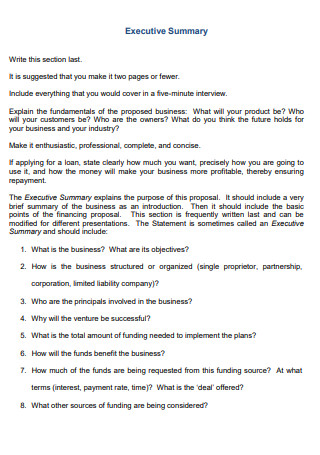
Business Startup Development Executive Summary
download now -
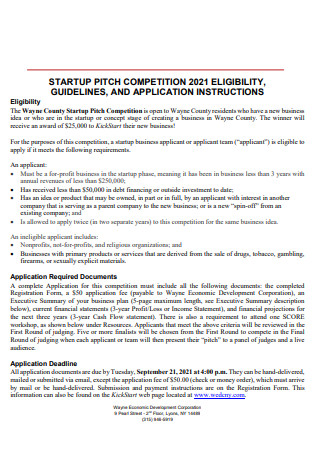
Startup Pitch Executive Summary
download now -
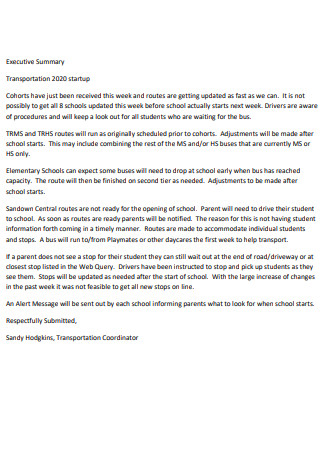
Transportation Startup Executive Summary
download now -
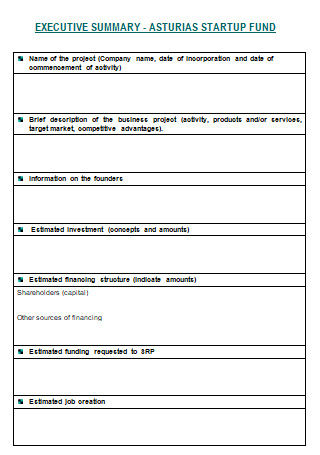
Startup Fund Executive Summary
download now -
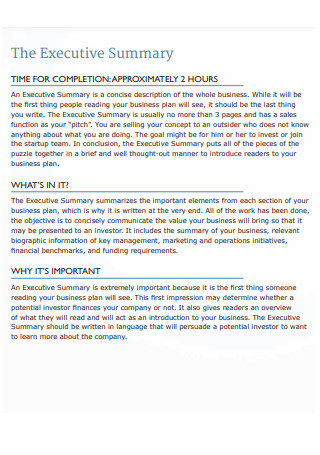
Basic Business Plan Startup Executive Summary
download now -
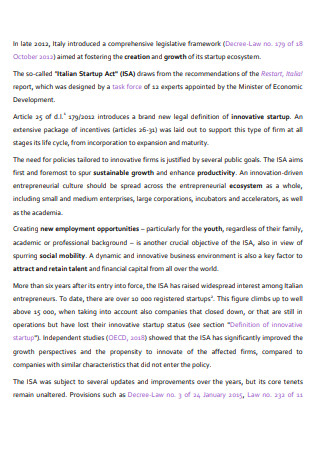
Startup Act Executive Summary
download now -
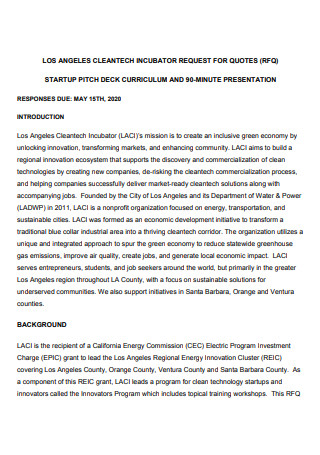
Startup Pitch Desk Workshop Executive Summary
download now -
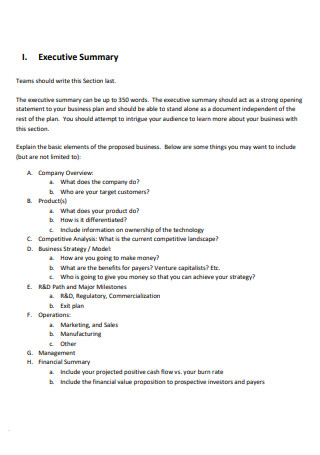
Brain Startup Executive Summary
download now -
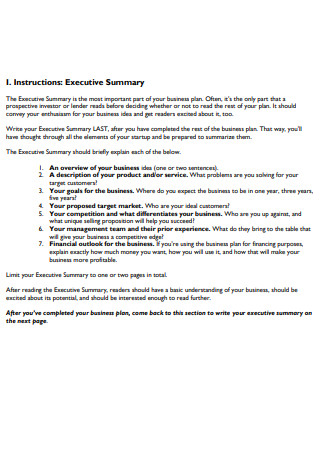
Startup Business Plan Template Executive Summary
download now -
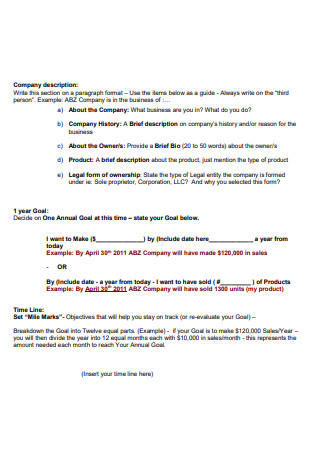
Startup Business Idea Plan Executive Summary
download now -
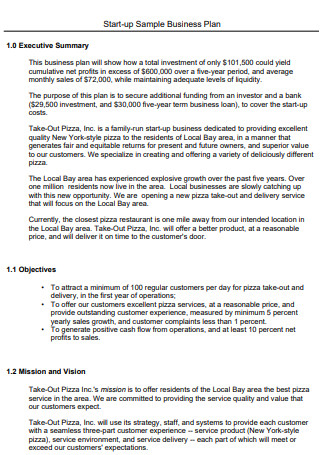
Startup Sample Business Executive Summary
download now -
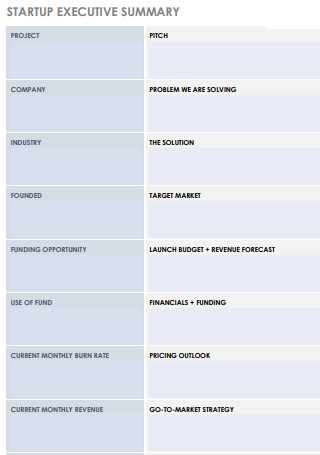
Startup Executive Summary
download now
FREE Startup Executive Summary s to Download
16+ SAMPLE Startup Executive Summary
What is a Startup Executive Summary?
Different Types of Startup Executive Summaries
Basic Components of a Startup Executive Summary
How to Write a Startup Executive Summary
FAQs
What are some examples of startup executive summaries?
What are the fundamental elements of a startup executive summary?
Why are startup executive summaries essential for startup companies?
What are the different kinds of startup businesses?
What is a Startup Executive Summary?
A startup executive summary is a short yet well-detailed and easy-to-read piece of business writing which comprises primary goals, objectives, and methods or strategies being compressed into a simple and systematic document. It typically describes the core points of the business plan, providing a preview or highlights of the startup business in order to tell why prospective investors might be interested in supplying funds to the startup business, why their startup business investment will be well-spent, and why startup owners, managers, and executives do what they do. Thus, this communication tool is integral for informing and convincing your prospects about the establishment of your startup and why they will be benefited from the startup.
A report by Small Business Trends has shown that having two startup founders increase the odds of a startup business’ success with 30% more investment, three times the customer growth rate, and 81% of the startup businesses will not scale too fast. Collaborating with competent, like-minded, reliable, and strong-willed entrepreneurs is a great way to raise worthwhile opportunities in making your startup business reach flying colors while working hand-in-hand to maintain the continuous growth and development of your startup venture. That’s why being effective in constructing a clear and well-integrated startup executive summary for your professional startup business work is an essential aspect in your overall startup business success. Thus, it is very fundamental for startup owners, startup business managers, and project managers to prepare an enticing startup executive summary.
Different Types of Startup Executive Summaries
There are many profitable startup and small business industries out there based on the percentages of their net profit margin (NPM). The top 10 startup business industries are accounting, tax preparation, bookkeeping and payroll services (18.4% NPM), real estate lessors (17.9% NPM), legal services (17.4% NPM), management of companies and enterprises (16% NPM), real estate-related activities (14.9% NPM), offices of dentists (14.8% NPM), offices of real estate agents and brokers (14.3% NPM), nonmetallic mineral mining and quarrying (13.2% NPM), offices of other health practitioners (13% NPM), and medical and diagnostic laboratories (12.1% NPM). However, what are different types of startup executive summaries that startup owners and managers like you need to write? Below are different types of startup executive summaries that you may consider:
1. Startup Commercialization Executive Summary
Creating a cohesive and logical business plan requires developing a proper and solid executive summary and this executive summary can also play a significant role as an effective and quick pitch to a prospective investor. To complete an executive summary for a startup commercialization plan, you need to select the right executive summary template for your startup commercialization plan. You may select from our eclectic selection of startup executive summary templates on our website. Indicate in your executive summary the exact year when your startup company was founded, the exact location of your startup, and write a clear description on what your startup business does or its principal mission or major objective. After that, describe the products and services of your startup company while providing the significance of each product and service. Showcase your main product/service in the introductory, growth, or maturity stage. Highlight its competitive advantage and tell your future plans with your main products/services. Define your target market, competition, and risks/opportunities, and introduce the key members of your management team.
2. Business Startup Development Executive Summary
You should be efficient in creating a well-structured executive summary for a new business startup development because it explains the purpose of your startup business proposal. Make your executive summary two pages or fewer and include everything that you would cover in a five-minute interview while elaborating the fundamentals of the proposed business. Consider answering these questions when you craft your business startup development executive summary: What is the startup business? What are its main objectives? How is the startup business structured or organized (single proprietor, partnership, corporation, or limited liability company)? Who are the principals involved in the startup business? Why will the startup business venture be successful? What is the total amount of funding needed to implement the business startup development plans? How will the startup funds benefit the business? How much of the funds are being requested from this funding source? What other funding sources are being considered for your business startup development?
3. Restaurant Startup Sample Business Executive Summary
If you are considering opening a restaurant startup business, it is important that you show how a specific total financial investment could yield cumulative net profits in excess over a fiver-year period, and certain average monthly sales, while maintaining adequate levels of liquidity. When you are planning to secure additional funding from an investor and a bank in order to cover the start-up costs of your restaurant business, you should thoroughly describe your family-run start-up restaurant business and showcase your specialization in creating and offering a variety of deliciously different foods. Describe the condition of your target market and its growth over the past five years. Indicate what you will add in your food menu or food services like food take-out and online delivery services. Identify your primary objectives, mission and vision, and desired outcomes for your restaurant startup. Some examples of objectives are to attract a minimum of 100 regular customers per day for pizza take-out and delivery in the first year of operations, and to generate positive cash flow from operations.
4. Healthcare Startup Clinical Program Executive Summary
According to a report, healthcare startups in the United States were the strongest industry in 2017 as it brought in $36.3 billion in revenue along with Inc. 5000 companies. Do you need to write business plans for a healthcare startup or clinical program? In order to raise capital, find strategic partners, recruit employees and provide an internal guide on how to drive a healthcare company’s growth, it is very important to develop a structured business plan and write a compelling executive summary. Make sure that the executive summary is concise, dynamic, and well-written as you include all details behind key assumptions, and explain why you need to set up a new clinical program or to expand operations within a healthcare system.
Basic Components of a Startup Executive Summary
In this section, you will learn how to craft an impeccably-written executive summary so that you are able to draw the attention of your sponsors, investors and/or other key individuals in your startup business management. However, an executive summary contains different kinds of components. Take into account of the following elements for you to create a one-of-a-kind document:
How to Write a Startup Executive Summary
Forbes stated: “The time of year you pitch, the detailedness of your data, and the value of your pitch deck are a few of the strongest factors affecting the amount of funding a business receives.” When writing a startup executive summary, consider the specific pitch date, the data comprehensiveness, and the pitch deck value. In this matter, we suggest that you follow the simple steps below while freely using one of our startup executive summary templates in this article:
Step 1: Start with an Interesting Opening Statement
Begin your startup executive summary with an interesting and thought-provoking pitch idea so that you are able to catch the attention of your prospective investor, sponsor, or client. Also known as a hook, you need to share something unique about your company, an exclusive concept, a captivating fact or simply, a well-written description of your startup business. Craft this section based on the needs, personality and preference of your target readers. Focus on how you will grab their attention in the opening statement or paragraph of your executive summary.
Step 2: Describe the Startup Company
When was your startup business formed? Where is the exact location of your startup? What are the unique aspects of your company products and services? What are the full names and specific roles of the startup founders or executive team? Write the general information about your startup business. Help your prospects to understand what your startup business does or what kind of products and services you offer to the people and who is managing the company or who are the key individuals of the startup company.
Step 3: Develop a Market Analysis
Who are your competitors? Is there a demand for your products or services? What advantages do you have that make your startup business one-of-a-kind compared to other businesses? Write a simple description of the target market of your startup business. Highlight your market analysis by providing a separate section of your business plan.
Step 4: Showcase Your Products and Services
Discuss how your startup business will fill in the field and industry you are planning to venture. Emphasize your products and services that your startup company offers. Talk about your current sales, the growth you’ve observed so far, and any other selling points for your startup business. Specify what sets your startup company apart and gives you a competitive advantage.
Step 5: Add Financial Details, Projections and Future Plans
Provide your reader a brief overview of your existing startup business financials by informing them your current sales and profits if you have any, funding requirements for your startup business and how it will significantly influence your financials in the following years. Plus, clarify what you are going to use that funding for by telling your future plans like opening another business location or branch office, expanding your product line, etc.
Step 6: Review, Proofread and Edit
Last but not the least, review, proofread and edit your startup executive summary carefully. It should be concise, having one or a few pages long. The length should be between 5-10% of the overall startup business plan. Use proper language that your target audience easily understands. Point out the key points in the same order as they appear in the overall document. Proofread if there needs correction in the spelling and grammar. Construct your startup executive summary in a way that is easy to skim or scan.
FAQs
What are some examples of startup executive summaries?
Some examples of startup executive summaries are startup competition executive summary, startup clinical program executive summary, startup costs executive summary, startup commercialization executive summary, business startup executive summary, business startup development executive summary, startup pitch executive summary, transportation startup executive summary, startup fund executive summary, basic business plan startup executive summary, startup act executive summary, startup business idea plan executive summary, startup sample business executive summary, and many others.
What are the fundamental elements of a startup executive summary?
The fundamental elements of a startup executive summary are a brief description of your startup company products and services, your startup business structure, your target market, marketing strategy, startup financial requirements, financial projections, purpose, significance, benefits, references, and citations.
Why are startup executive summaries essential for startup companies?
Startup executive summaries are essential for startup companies because they can perform more research work into their markets as possible so that their businesses can be successful. Plus, they can present their in-depth thought process and determination as they continue in collecting and arranging all of their market research into an executive summary. Summarizing the key points in their startup businesses can help them look more interesting and unique to their prospective investors and stakeholders which may potentially lead to adequate funding to commence the establishment of their company.
What are the different kinds of startup businesses?
The different kinds of startup businesses are accounting business, e-commerce business, taxi booking service and solution business, car washing business, courier services, food ordering system services, video editing services, online appointment system services, chatting app services, social networking services, hardware intelligence business, stock management system services, live streaming solution, laundry business, team message app solution, grocery business, voice conversation services, event management services, interior decorating services, wedding planning services, virtual assistant services, online consultancy services, graphic design business, and property business.
Timi Nadela said: “Write your executive summary of where you want to take your business, and why your business idea will be successful.” Whether you are planning to establish a new startup company or expand your startup business, it is fundamental that you have the right skills in writing an impeccable startup executive summary. Thus, we highly suggest that you carefully follow the aforementioned tips and steps in this article so that you are able to craft an enticing and well-coordinated startup executive summary. Plus, download our sample startup executive summary templates, sample startup competition executive summary examples, startup clinical program executive summary templates, startup costs executive summary examples, startup commercialization executive summary templates, and other executive summary document format writing templates here today!
